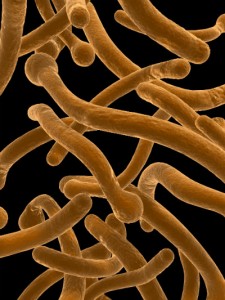![[Webinar Signup] What Is the Body Ecology Diet? An Interview with Donna Gates Body Ecology Diet: An Interview with Donna Gates](https://www.mariarickerthong.com/wp-content/uploads/2013/11/Donna-Gates-and-Body-Ecology-Diet.jpg) Donna Gates is the developer of the Body Ecology Diet, a gut-healing diet that can be used to recover symptoms of autism, ADHD, autoimmune diseases, hormonal imbalances and more.
Donna Gates is the developer of the Body Ecology Diet, a gut-healing diet that can be used to recover symptoms of autism, ADHD, autoimmune diseases, hormonal imbalances and more.
Sign up for the webinar replay below.
In this interview, Donna talks about how she developed the Body Ecology Diet, almost as an offshoot of what she learned studying macrobiotics.
We talk about gut health is important for the immune system and how, if you have gut dysbiosis (an imbalance of bad bacteria, yeast, parasites and pathaogens vs. good), that it leads to ill health.
Gut health also affects brain health, as most (95%) of your neurotransmitters are made in your gut. Most, if not all, people with neurological and neurodevelopmental disorders have impaired gut function, which is why cleaning up the gut can help recover people from symptoms of these chronic disorders.
Find out how this diet can help those with:
- Allergies
- Food allergies
- ADHD
- Asthma
- Autism
- Neurological disorders
- Thyroid disorders
- Autoimmune disorders

 Kombucha may not be well tolerated by those with weak immune function, gut dysbiosis or hormonal imbalances, such as people with SIBO, IBS or Candida overgrowth. Donna Gates of the Body Ecology Diet recommends doing controlled ferments with specific bacteria or yeast instead.
Kombucha may not be well tolerated by those with weak immune function, gut dysbiosis or hormonal imbalances, such as people with SIBO, IBS or Candida overgrowth. Donna Gates of the Body Ecology Diet recommends doing controlled ferments with specific bacteria or yeast instead.  In the wake of hurricanes and floods, mold remediation will be at the top of the list of many people’s cleanup efforts. Exposure to mold can cause significant health problems, both acute and long-term.
In the wake of hurricanes and floods, mold remediation will be at the top of the list of many people’s cleanup efforts. Exposure to mold can cause significant health problems, both acute and long-term. Having a son with a developmental delay was very hard on me. He didn’t walk until he was 20 months old. This was extremely hard for me because he didn’t walk until 3 weeks before his little brother was born, and I was having to carry him everywhere.
Having a son with a developmental delay was very hard on me. He didn’t walk until he was 20 months old. This was extremely hard for me because he didn’t walk until 3 weeks before his little brother was born, and I was having to carry him everywhere.

